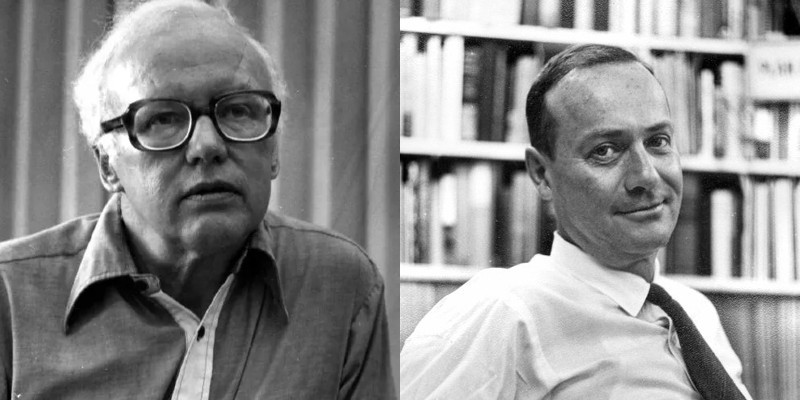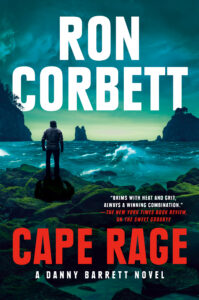There is a flea-market in Oldsmar Florida – “Largest in the South” it claims – that I visit when I am in the area. At the end of one of the many outdoor aisles of the flea-market is a used bookstore.
I have been to the flea-market, and this bookstore, often enough that the owner knows me, although I don’t know his name, nor the name of his store – there is no signage – and he gets oddly secretive when I ask for a business card — “Darn, I just ran out.”
Hardcore booklovers can have their quirks, so I don’t press him on this, but as I said, he knows me and when I walked into his shop recently, he greeted me with: “You’re back. Looking for more of them, are you?”
“If you’ve got any.”
“Which one?”
“Does it matter?”
“Ahh, but it does. Got plenty of one Macdonald, can’t keep the other one on the shelves. That’s a sad thing, don’t you think? But let me see what I have for you.”
Then he scurried away and started rummaging through cardboard boxes, looking for the books he knew I would want to see (much of his store is in cardboard boxes). I laughed at what he said, although later in the day, when I started to think about it, as he had suggested, I decided it was rather sad.
The two authors my anonymous bookstore owner was referring to are both acclaimed mystery writers — John D. MacDonald and Ross Macdonald. The similarities, and differences, between the writers are striking. As has been the critical response to their work since their deaths in the 1980s.
Both men are also best known for a detective – Travis McGee for the MacDonald with the upper-case D and the middle initial, Lew Archer for the no-middle-initial, lower-case-d Macdonald.
Which one had the better detective? It was a question I found myself wondering, as I walked through the buildings and outdoor aisles of the largest flea market in the South, a new bundle of books in my arms.
***
Before we try to answer that question, let’s go through the similarities between John D. MacDonald and Ross Macdonald. For starters, both men were born within months of each other, MacDonald on July 24, 1916. Macdonald on December 13, 1915.
Both men would die in the 1980s, MacDonald on December 28th, 1986, from complications following heart surgery, Macdonald on July 11, 1983, from Alzheimer’s disease. (In an odd detail, the birth month and death month for each man would be the opposite of each other.)
Both men would have one wife that they would out-live, and one child. Both would earn prestigious, post-graduate degrees – an MBA from Harvard for John D, a PhD in Literature from the University of Michigan, for Ross without-a-middle-initial.
Both would move North to South – John D from Utica, New York to Sarasota Florida, Ross from Kitchener, Ontario to Santa Barbara, California. When you look at a map, you will see that the cities of Utica, New York and Kitchener Ontario are not that far apart, more or less (bit of a stretch) on opposite shores of Lake Ontario.
Neither Mac – d-D-onald would move again, and both would use their new home-states as the settings for some of the most highly regarded detective mysteries ever written.
***
Now for the differences.
Ross Macdonald is a penname for Kenneth Millar. Born in Los Gatos, California, Millar returned to his mother’s hometown of Kitchener when he was four, after his father abandoned the family. He lived with various relatives throughout his childhood and teenage years, eventually earning an undergraduate degree in English from the University of Western Ontario.
John D Macdonald was born in Sharon, Pennsylvania. His father, Eugene MacDonald, worked for the Savage Arms Corporation, eventually becoming treasurer of the company, and re-locating the family to Utica. Macdonald attended the Wharton School of Business and Harvard University. He worked for banks and insurance companies, before deciding upon a writing career.
For Millar it was a testament to his character – and almost a miracle – that he graduated from university. In Canada, he and his mother were virtually penniless. He was in constant trouble with the law, a street fighter, a thief. Relatives paid for his tuition. It was at university that he met his wife, Margaret, and his life turned for the better.
John D MacDonald’s one act of rebellion was becoming a writer instead of a banker. He worked in his study in his home in Sarasota, sunrise to sunset, with the exception of quitting early on Friday afternoons to take his wife to dinner at a nearby country club. Their one child, a son, gave them five grandchildren. If there was tragedy in John D’s life before his untimely death following surgery at the age of 70, it is unknown.
Kenneth Millar’s life, on the other hand, always seemed a struggle. While John D. MacDonald’s Travis McGee books were immediately popular, the Lew Archer books had moderate sales for years, and Millar constantly worried his publisher would drop him. Millar’s one child, a girl, had a troubled childhood, and at 16 was charged with vehicular homicide. She died at 31.
The two men’s deaths could not have been much different, either. Following coronary artery bypass surgery, John D MacDonald, on December 10, 1986, slipped into a coma and died 18 days later. He had been writing, and writing well, until he entered hospital.
Ross Macdonald battled Alzheimer’s and tried to keep it a secret for seven years, or more, before his death. His good friend and fellow writer Eudora Welty remembered receiving a letter from him in the early ‘80s that asked the question: “It scares me, my hands can’t write, what happened?”
***
Back to my wanders through the Oldsmar Flea Market, a handful of books under my arms, my anonymous bookseller’s observation ringing in my ears – “that’s a sad thing, don’t you think?”
What the bookseller found sad was the selection he was about to show me – many Ross Macdonalds, no John Ds.
“Nobody wants Ross anymore,” he told me, once he had finished going through his cardboard boxes. “He used to be bigger than John D, but when all the Travis McGee books were re-issued and Stephen King and Koontz said all those nice things about him, I can’t keep John D on the shelves.”
When Random-House re-issued the Travis McGee catalogue a number of years ago (twenty-one books) Stephen King, in case you missed it, called MacDonald “the great entertainer of our age.” Dean Koontz called him “my favourite novelist of all time.”
John D is one of my favourite novelists as well. I have, by going to various flea-markets and used bookstores, collected vintage paperback editions of all but two of the Travis McGee novels (I am missing only The Turquoise Lament and A purple Place for Dying).
He was, as King said, a great entertainer. He was, as Koontz said, a great novelist.
But – The Way Some People Die, the third Lew Archer book, is the best detective story written by someone named Macdonald, whatever the spelling of the last name. The tragedy in Kenneth Millar’s live can be heard – almost as waves crashing on a beach – in every chapter of that book. It is heart-breaking.
I’ve loved every Travis McGee book. None of them have haunted me the way that book did.
Macdonald has been hot at times – two Lew Archer novels were turned into Paul Newman movies, one of them being Harper – but he is stone-cold right now. Not even a long-anticipated 2022 biography has done much to generate new interest.
I wish his long-time publisher – Alfred A Knopf, now owned by Penguin Random House, as fate would have it – could do what the parent company did for John D – re-issue the Lew Archer collection, with the appropriate star-author praise. He deserves it.
***


















